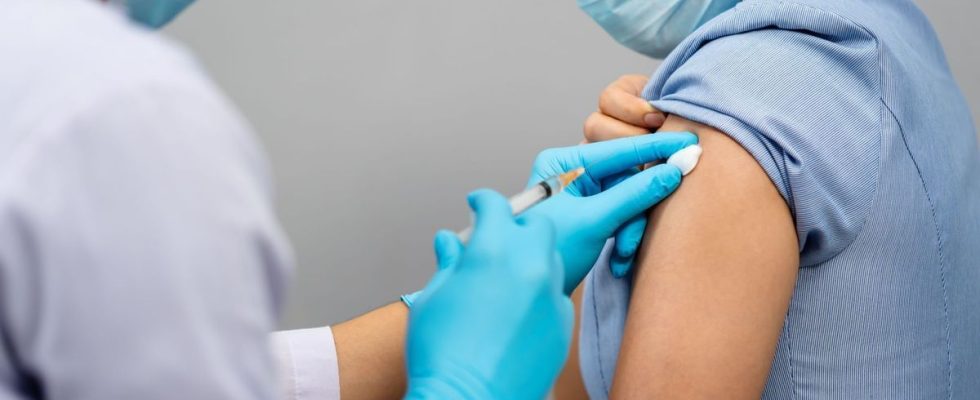Published on
Updated
Reading 2 mins.
In an opinion published on July 31, 2023, the High Authority for Health reassesses the obligations and vaccination recommendations of caregivers, and recommends an obligation to vaccinate against measles.
In a notice published on its website yesterday, July 31, 2023, the Haute Autorité de Santé (HAS) reviews its recommendations and obligations in terms of vaccination for caregivers. In its press release, the HAS also recommends “to implement an obligation for professionals to immunize against measles, and to maintain the recommendations for vaccination against whooping cough, influenza, hepatitis A and chickenpox“.
What is measles?
Measles is a highly contagious infectious disease caused by a particular virus, the paramyxovirus of the morbillivirus genus.
Contamination occurs through the projection of saliva droplets (coughing, sneezing, etc.) and the incubation time is 10 days. The patient is contagious about 5 days before the onset of symptoms and up to 5 days after the onset of the rash.
The main people affected are children and infants. The latter, but also pregnant women or immunocompromised people are particularly at risk of complications, especially in healthcare settings.
Indeed, continues the HAS in its note, “studies from Public Health France indicate that healthcare professionals are involved in 75 to 83% of measles cases in healthcare establishments in France”.
A vaccination in two doses of MMR vaccine
Because of this, the HAS estimates that “this contagiousness, combined with the existence of a vaccine offering effective protection (over 95% after a complete vaccination schedule) and lasting (for life, for non-immunocompromised people)” lead her torecommend compulsory immunization against measles”.
In fact, students and professionals who are not vaccinated or who cannot attest to contamination will have to be vaccinated and people born before 1980 should only receive a single dose.
The HAS recommends that this vaccination be administered with two doses of trivalent MMR vaccine (measles, mumps, rubella). And if necessary, a serological test can be carried out upstream to establish the immune status.
Finally, the HAS recalls that “this vaccine being contraindicated for pregnant women, any woman of childbearing age must, in case of doubt, carry out a pregnancy test before vaccination..
